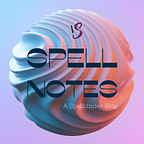Writing Tips — How to get unstuck from the writing process
sighs* If only we could just transfer all the vibes and bits of ideas in our heads into our Word doc and magically have it arrange all the planning so all we have to do is write. And in correlation to what a friend of mine had said about how it is we don’t have developed technology for this yet, I beg the same.
The planning process is a love-hate relationship. I’m still in the process of planning my novel, and I know no good story comes from lackluster planning (even for pantsers). But it does get exhausting sometimes just trying to constantly brainstorm ideas and then evaluating if said ideas work. I’d imagine some writers could empathise, but truthfully, it is no easy process. Sometimes we just want to write and only write. I mean, we’re writers. It’s in the job title.
So how are we going to keep the planning process lively and engaging without slipping into office work territory? Here are some personal recommendations I’ve procured, based from my own experiences:
1. Get some character-building done
Sometimes, you may be stuck in the planning process due to lack of character building itself!
A fun exercise you could try is conducting interviews with your characters. Ready a set of questions, and write your answers as to how your character would reply to them. You not only dig a little deeper in exploring your characters, but you also figure out their voice at the same time — how do they speak? How do they sound? Do they have a low or high register? Are they prone to slang? Do they ramble?
And if you don’t have everything figured out, that’s part of the process! Just have a think about those questions, what the answers could be, and how your character would relay them to someone. As long as it’s feeding you and your creativity, go crazy with it!
2. Write pieces based on your WIP
This is the method I tend to do the most, which is how I end up with about 8 documents of different developing plot points that are either half-done, faulty or just confusing. If you can tolerate having a bunch of messy drafts in your workspace (physically or digitally), you can try doing this; you never know what new discovery you’re going to spontaneously come upon that’s going to change the trajectory of your story.
Miraculously, I ended up testing out the rocky relationship of my characters and how they would interact with each other, a plot point to follow, a location to go, and a little surface world-building for said location. Are any of these details concrete? No. Will I stick to everything I wrote in those glorious moments of pure concentration? Probably not. But I at least have something to work with now, so it’s a little improvement in the right direction.
3. Create, create, create
Sometimes, we do need a visual concept of an idea for us to look upon and actually get anything out of it. So if you’re stuck with visually seeing your concepts come to life, or if you’re not sure what you’re looking for, try your hand at creating and compiling references and inspiration to clear those foggy thoughts!
You can create character portraits on Artbreeder, mix and match and adjust different features until you’re settled on something you can work with. It’s easy to navigate and it’s loads of fun; plus, just imagine how fulfilling it’d be to have an actual photo of your beloved darlings.
What if you want a catalogue of your world and your story? Never fret; Pinterest is every writer’s best friend (that rhymed!). Create moodboards at your disposal for any and every aspect of your story — characters, couples, locations, clothing, the story itself, etc. Chances are, you might just stumble upon the right creativity you need to lodge yourself out of your dilemma and find your way through the messy process of planning your story.
And if you’re keen on keeping your story’s vibes in a jar and never let it go, creating playlists is one way to go about preserving those vibes. One click on that play button, and you’re now lost in a world of your creation. Get yourself in the zone, and have fun with it.
I realised that the more I keep going about this process systematically like it’s an assignment due at midnight, it kinda takes away the fun of exploration in the planning process, and that fun is what should matter. Because this is your story, and you should be enjoying the majority of it. Just remember: You can always edit and fix things later, but you can’t edit a blank page. So go figure.
– Ashlynn Theo, Associate Editor
Photo by Jess Bailey Designs: https://www.pexels.com/photo/two-pink-ballpoint-pens-on-table-1007025/
This blog post, along with many others, is also available to read on our Medium channel Spellnotes.
If you don’t follow us on social media already, you can find links to all of our social media channels at this link.
You can also listen to our seasonal issue inspired playlists on our Spotify channel.
If this content has inspired you to create something brilliant, please don’t hesitate to submit your work for our upcoming issue here, but be sure to adhere to our submission guidelines, available to read here.
